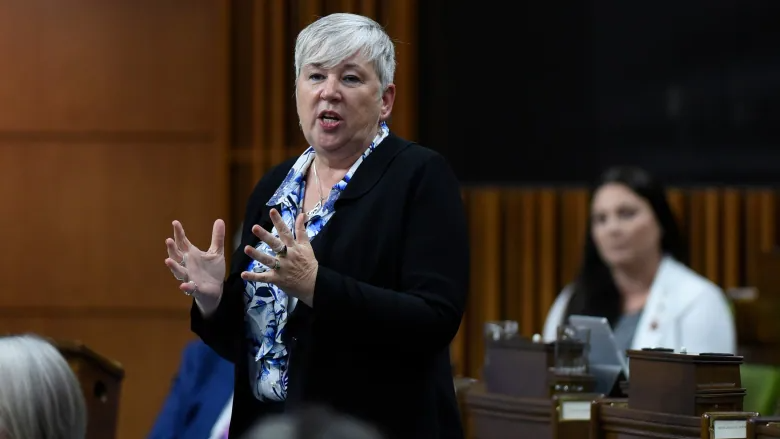Nunavut Inuit in Canada suing feds over fishing licence allocations to Mi’kmaw company

Nunavut fishers pushing for proportionate amount of quotas off its shores
Inuit in Nunavut are suing the federal government over a decision to hand over a sizeable portion of fishing licences off Nunavut’s coast to a coalition of Mi’kmaw First Nations in Atlantic Canada.
In a lawsuit filed earlier this month, Nunavut Tunngavik Incorporated (NTI) and the Qikiqtani Inuit Association (QIA) asked the federal court to quash a decision by Canada’s Minister of Fisheries and Oceans to transfer the licences for Greenland halibut and shrimp from seafood company Clearwater Foods to the coalition, after the Mi’kmaw group partnered to buy the company in January.
NTI represents all Inuit in Nunavut, while QIA represents Inuit in the Qikiqtaaluk (Baffin) region.
Both groups declined to comment on the lawsuit. In a statement, Canada’s Department of Fisheries and Oceans also declined to comment on the lawsuit, but on transferring the licenses it said it “undertook a detailed analysis of this proposal in light of relevant regulations, policies and land claim agreements.”
It added, “in reaching her decision, the minister took into account the Fisheries Act, regulations, policies, management plans, land claim agreements and the views from Nunavut and Nunatsiavut with respect to their land claim agreements.”

The lawsuit describes how Nunavut fishers have only held about 50 per cent of total fishing quotas for all species off Nunavut’s coast, which Inuit argue is disproportionately low compared to the 90 per cent that fisheries in Atlantic provinces have off their own coasts — an acknowledgement the federal government and DFO have made on several occasions.
Clearwater Foods, before its sale in 2021, held a significant portion of those Greenland halibut (also referred to as turbot) and shrimp licences off of Nunavut’s waters.
Nunavut fisheries, however, enjoy more than 70 per cent of halibut-specific allocations off its shores, after the territory’s fishers received the majority of a 2017 increase in quotas. At the time, there was hope the move signaled a change in attitude toward the adjacency principle on the part of the federal government.
The Nunavut Agreement — the land claim agreement which created Nunavut — also has an article which says the federal government “recognizes the importance of the principles of adjacency” and the importance of fisheries to Nunavut’s economy, and “shall give special consideration to these factors when allocating commercial fishing licences” off its coast.
The federal government has not filed a statement of defence in response to the lawsuit.

Minister ignored Inuit requests, lawsuit alleges
According to the lawsuit, when Clearwater announced in March 2020 it was up for sale, NTI, QIA and the government of Nunavut wrote to Minister Bernadette Jordan to come up with a plan whereby Nunavut fisheries could acquire the licences Clearwater held off Nunavut’s coasts. They also sent a follow up letter in May 2020.
Neither letter received a response from Jordan. Reached by phone on Wednesday, Jordan, through her staff, declined to comment following her loss in Monday’s federal election.
The lawsuit also says QIA raised the issue with Jordan on a phone call in June 2020, and sent more letters in July and September.
The first time Jordan’s office reached out to Nunavut’s stakeholders was in February 2021, the lawsuit alleges, a month after DFO received the transfer request from the Mi’kmaw fishers. Jordan was seeking input on the transfer request, to which the Nunavut Government, NTI and QIA reiterated “the historic inequities” and argued in favour of allocating the licences off Nunavut’s coast to Qikiqtani communities.
Nunavut’s stakeholders didn’t hear from federal officials again until August 2021, when DFO’s deputy minister Timothy Sargeant wrote to NTI and QIA informing them of the transfer decision which had already been made.
“Besides one sentence stating that the Minister had considered [the Nunavut Agreement], the letter provides no further content regarding how [the Nunavut Agreement] or Inuit rights were considered,” the lawsuit reads.
Related stories from around the North:
Canada: Central Arctic Ocean fishing moratorium comes into effect, Eye on the Arctic
Finland: NGOs seek stricter fishing rules to protect Finland’s endangered Saimaa seals, Yle news
Greenland: Greenland and Denmark finalize cooperation agreement on marine pollution response, Eye on the Arctic
Russia: Nornickel has changed positively, says Taimyr Indigenous group in Arctic Russia, The Independent Barents Observer



